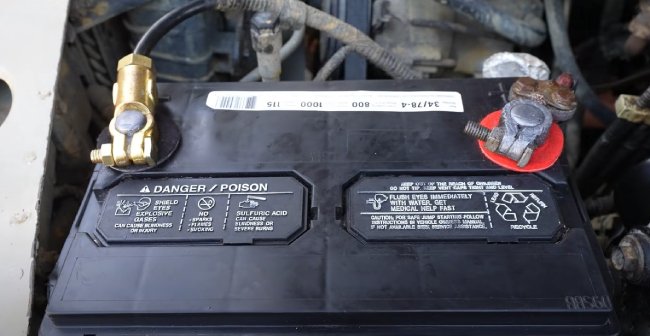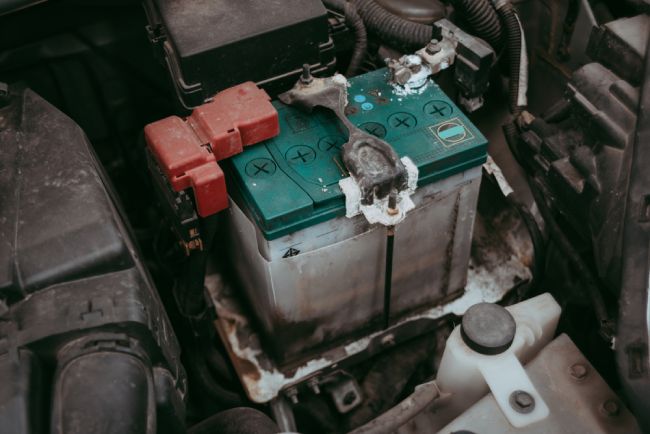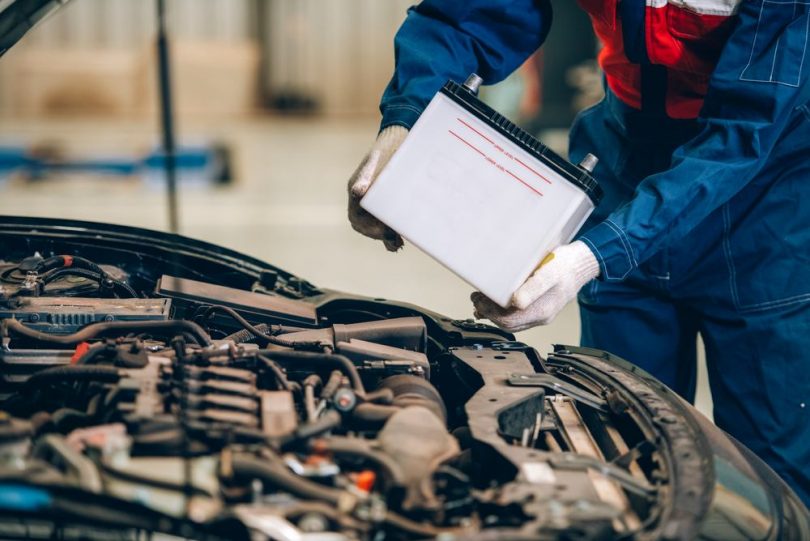Most car batteries will be able to hold charge for at least 2 weeks without being recharged.
However, there is no definitive answer to this question since every car and every battery are different.
How long a car battery can hold charge will depend on several factors mentioned below:
1. Electricity Used
The charge capacity of your car will greatly depend on how much power your car and all the other electrical systems are using. The greater the load, the faster your battery will drain out.
2. Charge level
Very few car batteries hold a full charge when the car is parked. Even if you are not driving your car, the systems inside like GPS, Bluetooth, radio, and alarm systems are consuming charges.
We recommend that you connect your battery with a charger once a month to make sure your car battery gets fully charged. This will help increase the durability and charge capacity of your battery.
3. Energy production
Unless you can accurately measure how much energy is produced during starting the engine or driving the car around, it’s really difficult to say how fast your battery will be recharged.
In rare cases, turning your engine on may consume more power than it produces. That’s why the best practice is to use a quality battery charger at least once a month.
How Much Charge Can a Battery Hold?

A standard, fully-charged, and healthy car battery will show 12.4-12.6 volts in the meter and will have enough resources to support a 25A load for 9-15 hours.
After that, the voltage will drop to 10.5 volts and the battery probably won’t be able to provide enough power to start the engine anymore, unless you recharge it.
How Long Can a Car Sit Before the Battery Dies?
Usually, car batteries lose 1% of their charge every day if you leave them attached in your car. Most batteries can’t power the engine once the battery level goes below 70%.
That gives you about a month during which you can leave the car with the battery plugged in. Any more time than that and your battery won’t be able to start the engine unless you recharge.
This also depends on the electronic items you use in your car. The more load the battery has, the faster it will drain.
How Often Should I Drive My Car to Keep the Battery Charged?
Whether you drive your car or not, your battery will drain naturally. The more electrical systems you use, the faster your battery will drain.
With that being said, you should drive your car for 30 minutes every week to make sure your battery gets enough recharging.
I’m not talking about random takeouts/short trips every once in a while. That’s not enough.
Take your car to the highway and keep driving for about 30/40 minutes. That should keep your battery charged for a little longer.
Causes of Battery Drain
How long a battery can last depends on the climate along with the age and capacity of the battery.
There is a term called parasitic drains, which drain the charge of your battery without your knowledge.
The vehicles which have a lot of computers and gadgets connected last less than the expected time (less than 4 weeks). This is because these gadgets drain power even when the car is off.
What Damages the Battery
1. Time
The basic job of a car battery is to convert chemical energy into electrical energy. The materials used in a battery are under constant chemical exposure and it won’t stop till the battery dies.
That is why even if you use your battery following every recommendation, the battery will still discharge naturally and die. No batteries last forever whether you use them or not.
Many conditions like temperature, weather, charging/discharging quality, and the load will determine how much charge a car battery can hold/supply and for how long.
2. Charging or discharging the wrong way
This is the most prominent cause of your car batteries dying on you. Not all batteries will show early signs of damage.
If you charge/discharge your battery a bit too fast or slow, it will damage the battery. Car batteries are sensitive that way.
All batteries discharge naturally. The batteries are meant to power your engine and lights mainly. Additional accessories like GPS, radio, alarm, A/C, Bluetooth, and clock will drain your battery faster.
Charging with more powerful/intense electricity will also damage the components of your battery. That’s why keeping a steady start cycle (charging/discharging cycle) is essential.
3. Structural failure
The main components of a car battery usually are a series of lead (Pb) grids submerged in strong electrolytes (Sulphuric Acid). They can take damage from the environment and the elements.
Car batteries usually undergo high/low temperature and rapid movements, which allow the lead grids to come in contact with air and cause structural failure and kill the battery.
What Are the Signs of the Battery Damaging

1. Triggers a dashboard light
Contradictory to what many people believe, seeing the dashboard battery light doesn’t mean your battery is dead. It means that the alternator is not charging the battery the way it should.
Ignoring the battery light for a long time can ultimately cost you your battery even if the initial reason was minute.
We recommend that you check the battery and all the connections if you see the battery light.
2. Dims the headlights/interior lights
When a battery gets damaged, it fails to provide the power needed across the car.
If the headlight and interior lights start to glow dimmer and weaker than usual, this might be an indication of poor battery health.
3. Sounds while you turn the key
When you turn the engine on, the power gets delivered from the battery to an electromagnet named “starter solenoid.”
When the starter detects low/insufficient energy coming from the battery, it makes a certain “click” noise. If you hear something like that, check the battery.
4. Slows down the crank
Every good driver gets used to the sound of their vehicle. It’s really easy for the driver to suspect something when they don’t hear the usual growl of the engine.
If you feel like something sounds off when you ride, you are probably right.
5. Smells bad
Sulphuric Acid disperses a distinctive “rotten-egg” like smell when evaporating. If your car starts to smell similar, there may be internal structural damage spreading. Check your batteries ASAP.
6. Backfires
Uncontrolled backfires are one of the most prominent signs of poor battery life. A weak battery will create random sparks that can ignite the gas and create backfires when it shouldn’t.
This may be true that there are plenty of other reasons a car can backfire. We recommend undergoing a battery test to be sure.
7. Struggles combating seasonal challenges
Car batteries can’t work well in high or low temperatures. If the temperature gets too high/low, the battery will have trouble starting the engine and that’s okay for a couple of times.
If the issue persists even after some time, it may be a good time to check on your battery’s health.
We strongly recommend regular checkups to ensure that your battery is tough enough for the weather.
What to do if the battery is flat?
Jump-starting is an option that you can try by using another battery or power source using jump leads. This process is also known as boost, which can start your car when its battery is flat.
Always test your car’s wattage with a designated charger between charges to get long-term battery support.
Tip on How to Store a Car Battery for Long
- Regularly check on the energy level.
- Recharge your battery if the charge gets too low
- Keep the battery on a temperate room/weather
- Clean up the battery regularly
- Check for any signs of damage
- Keep your batteries off the concrete cement floor
- Store the battery fully charged
- Apply dielectric grease on both positive and negative poles
- Attach a battery tender to the battery and follow the instructions
FAQs
1. How much would it cost to replace a car battery?
Ans: If you visit your local mechanic, replacing a car battery will most probably cost you anywhere between $50 – $450. The price may vary depending on the brand and service charge.
2. How many years do car batteries last?
Ans: Generally, a healthy car battery can serve you for 3-5 years. If you take good care, you may use your battery for even longer. We recommend changing the battery after 5 years though.
3. Can a car battery freeze when it gets too cold?
Ans: Not in most cases. A typical car battery can withstand a chilling temperature of -76 degrees. But yes, your car battery can freeze in extremely cold weather.
4. How often should I drive my car to keep the battery charged?
Ans: Every car and its battery are different. That’s why it’s hard to provide exact values unless you check the whole electrical system of your car. Instead, use a battery charger.
5. How does a car charge a battery?
Ans: Alternators keep the battery charged as you drive on modern cars. It is a piece of an electromagnet that gets attached to the crankshaft with a belt. The alternator converts the mechanical energy of your car into electrical energy, charging your battery whenever you ride.










Leave a Comment